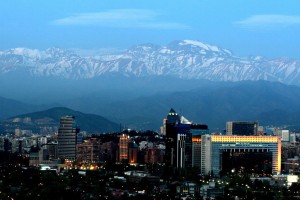 If you attend a Spanish immersion course in Santiago, Chile, you may indeed feel as though your experience was rather miraculous! However, if you hear the term “The Chilean Miracle” it refers to something different altogether. This economic term refers to the free market reorientation in Chile’s economy.
If you attend a Spanish immersion course in Santiago, Chile, you may indeed feel as though your experience was rather miraculous! However, if you hear the term “The Chilean Miracle” it refers to something different altogether. This economic term refers to the free market reorientation in Chile’s economy.
Nobel Prize winning economist Milton Friedman coined the term “Miracle of Chile”. The reason that he was so interested in the country’s economy is that it demonstrates the benefits of economic liberalism.
In the 1970s, before the market reorientation, Chile suffered from hyperinflation of 700%. The economy was in shambles. Chile’s economy was extremely protectionist as well. Later in that same decade, economists who sought economic liberalization drafted reforms, including privatization of state owned companies, stabilization of inflation, and the opening of new mines. Also, the formerly protectionist government began accepting foreign investments and got rid of trade barriers. These reforms took place in various stages up until 1990.
Conditions have continued to improve in the country for a variety of reasons. For example, Chile made a major deal with the EU in 2002 that encompassed free trade, and agreements that were both political and cultural. In 2003 and 2004 respectively, the country signed agreements with the US and South Korea. A free trade agreement was even signed with China in 2006, and this is the first time that China has had a free-trade agreement with a country in Latin America. These accomplishments all spurred on the economic development of Chile.
Part of what is so interesting about these policies is that they dramatically decreased poverty in the country. More and more, people had jobs as well as housing. Also infant mortality levels fell and life expectancy increased since the 1970’s. Poverty levels were reduced by more than half. Friedman pointed out that Chile was the “best economic success story” in all of Latin America.
When you study Spanish in Chile, you might hear the term “The Miracle of Chile” referred to at some point. After reading this article you likely have a better idea what this refers to. Even if economics isn’t a subject that interests you, this change of financial tides is a significant part of the history of the country.